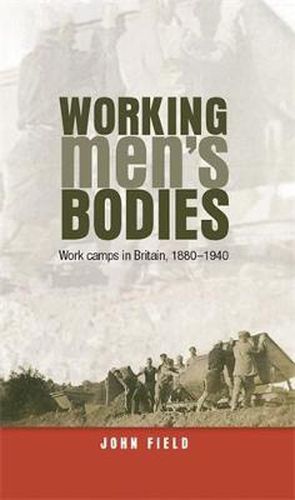Readings Newsletter
Become a Readings Member to make your shopping experience even easier.
Sign in or sign up for free!
You’re not far away from qualifying for FREE standard shipping within Australia
You’ve qualified for FREE standard shipping within Australia
The cart is loading…






Britain’s work camp systems have never before been studied in depth. Highly readable, and based on thorough archival research and the reminiscences of those involved, this fascinating book addresses the relations between work, masculinity, training and citizen service.
The book is a comprehensive study, from the labour colonies of late Victorian and Edwardian Britain to the government instructional centres of the 1930s. It covers therapeutic communities for alcoholics, epileptics, prostitutes and ‘mental defectives’, as well as alternative communities founded by socialists, anarchists and nationalists in the hope of building a new world. It explores residential training schemes for women, many of which sought to develop ‘soft bodies’ fit for domestic service, while more mainstream camps were preoccupied with ‘hardening’ male bodies through heavy labour.
Working men’s bodies will interest anyone specialising in modern British history, and those concerned with social policy, training policy, unemployment, and male identities. – .
$9.00 standard shipping within Australia
FREE standard shipping within Australia for orders over $100.00
Express & International shipping calculated at checkout
Britain’s work camp systems have never before been studied in depth. Highly readable, and based on thorough archival research and the reminiscences of those involved, this fascinating book addresses the relations between work, masculinity, training and citizen service.
The book is a comprehensive study, from the labour colonies of late Victorian and Edwardian Britain to the government instructional centres of the 1930s. It covers therapeutic communities for alcoholics, epileptics, prostitutes and ‘mental defectives’, as well as alternative communities founded by socialists, anarchists and nationalists in the hope of building a new world. It explores residential training schemes for women, many of which sought to develop ‘soft bodies’ fit for domestic service, while more mainstream camps were preoccupied with ‘hardening’ male bodies through heavy labour.
Working men’s bodies will interest anyone specialising in modern British history, and those concerned with social policy, training policy, unemployment, and male identities. – .